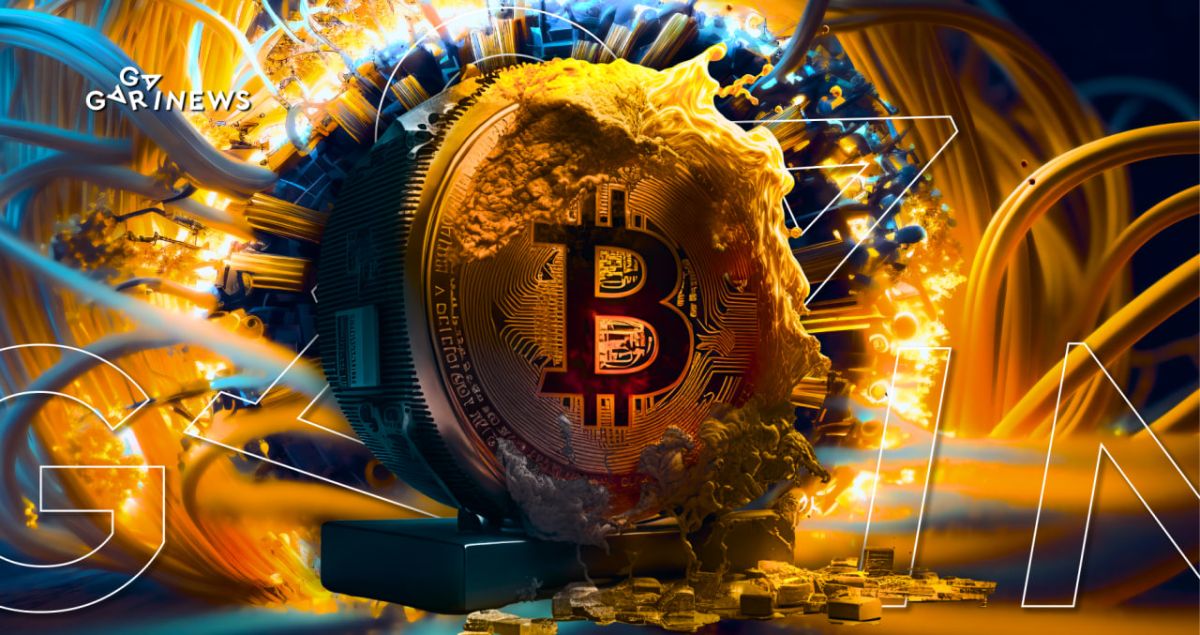Common Misconceptions About Cryptocurrencies Debunked

If you think that blockchain is an essential component of all digital currencies, or that tokens and cryptocurrencies are one and the same, fear not – many people are misled. In this article, we will examine popular myths and misconceptions surrounding the world of crypto.
On this page
Only on the blockchain do cryptocurrencies exist
The blockchain stands out as the most widely adopted form of distributed ledger, serving as the backbone of practically all cryptocurrencies available in the crypto market. Yet, beyond the blockchain, other decentralized databases have emerged, each with their own digital currencies. Among them is DAG (directed acyclic graph), which underpins HBR (Hedera), MIOTA (IOTA), and XNO (NANO). You can find more information on this topic in the article “Crypto without Blockchain: Surprising Facts“
Cryptocurrencies are of no intrinsic value
Given the speculative nature of the cryptocurrency market, it is possible that certain assets may lack any tangible value.
However, the foremost importance of cryptocurrencies, particularly Bitcoin, lies in their ability to offer decentralization. Bitcoin stands as the first and most authentic cryptocurrency whose foundation is built on the values of financial independence and freedom from the control of governments and banks over financial flows.
Asset, whether in the form of fiat or digital currency, is subject to the laws of supply and demand and depends on the trust of market participants. If a cryptocurrency with a proven track record manages to hold its value even during a long bear market, it is deemed valuable by its owners.
Tokens are cryptocurrencies
Some practical users tend to conflate the notions of tokens and cryptocurrencies, neglecting their peculiarities. However, from a technical standpoint, such a generalization is incorrect.
Cryptocurrencies or coins have their own decentralized ledger, which necessitates the creation of a separate blockchain to launch them, a process that can be resource-intensive. Conversely, tokens can be launched on established chains, significantly reducing costs and time. For example, developers can build a decentralized application on Ethereum's blockchain and release their unique token. For more comprehensive information, take a look at our article titled “What is the difference between a token and a cryptocurrency?“
Cryptocurrencies provide anonymity
While anonymous cryptocurrencies do exist, transactions involving BTC, ETH, and many other coins are completely transparent. Any user can view the cryptocurrency wallet address, transfer amount, and other details in the public blockchain. Although it's a common misconception that a cryptocurrency owner's identity cannot be determined solely from their wallet address, there are ways to retrieve such information.
Recently, 0xB10C, a Bitcoin developer, disclosed the existence of a community in the market that gathers users' IPs and links them to Bitcoin addresses since 2018.
Crypto would not endure
It is likely that during the emergence of smartphones and the internet, there were people who viewed them as excessive or fleeting indulgences. In a similar vein, the existence of Bitcoin can only be terminated if all the miners supporting the network disconnect from the software. This scenario is only possible in the event of an apocalypse. Conversely, other well-established decentralized digital currencies cannot simply vanish as long as there are people who find them valuable. Nevertheless, this statement is entirely valid when it comes to problematic projects and shitcoins.
Scam is the essence of digital assets
Unfortunately, the world of cryptocurrencies is indeed tainted by a considerable amount of scams and deceit. In their quest for quick riches, many people resort to nothing but malice and theft. Nonetheless, this does not imply that the entire industry is a fraudulent scheme.
In addition, perpetrators of fraud are more prone to utilizing tokens rather than cryptocurrencies, as the former can be created with considerably less complexity.
Crypto: a rich man's game
While Bitcoin could be classified as a Veblen good, its value is rooted in the democratization of financial power, granting greater opportunities and autonomy to regular individuals. Although comprehending the technical aspects of blockchain and cryptocurrencies might seem daunting to the uninitiated, their fundamental principles are straightforward: to eliminate middlemen (such as governments and banks) and establish a more equitable financial system.
Crypto harms environment
For a considerable period, this claim was not a fallacy, but the world of cryptocurrencies is not stagnant and is continuously evolving. A significant move towards purifying the environment from the pollution caused by mining was the switch of Ethereum, the second-largest blockchain, from the Proof-of-Work consensus mechanism to Proof-of-Stake. Thus, its ecosystem rid itself of resource-intensive equipment to maintain network security and embraced a more eco-friendly alternative. As of 2023, the trend of moving from PoW to PoS has further consolidated.
Cryptocurrency mining, once notorious for its hefty carbon footprint, is now taking a more eco-conscious approach. As the industry evolves, more and more miners are turning to alternative energy sources, leaving behind the days of coal-fired power plants and carbon emissions. In fact, many crypto projects are now investing in carbon-neutral initiatives, proving that the future of mining can be both profitable and sustainable.
For more information about Bitcoin mining and its impact on the environment, read our dedicated article.
The content on The Coinomist is for informational purposes only and should not be interpreted as financial advice. While we strive to provide accurate and up-to-date information, we do not guarantee the accuracy, completeness, or reliability of any content. Neither we accept liability for any errors or omissions in the information provided or for any financial losses incurred as a result of relying on this information. Actions based on this content are at your own risk. Always do your own research and consult a professional. See our Terms, Privacy Policy, and Disclaimers for more details.


























